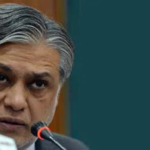Beijing has reached “temporary herd immunity” and its Covid outbreak is nearing an end, a city health official said Tuesday, in another sign China’s unprecedented virus wave is waning.
A torrent of cases has cascaded through the world’s most populous nation since the ruling Communist Party abruptly ended its zero-Covid policy last month.
The surge packed hospitals and crematoriums in major cities including Beijing, though the scale of the outbreak is hard to verify given that official data is believed to represent a tiny fraction of the true number of cases.
But there have been indications that the surge has started to tail off, with authorities saying last week that the number of daily Covid deaths nationwide had fallen by nearly 80 percent since the start of January.
Wang Quanyi, deputy director of Beijing’s Centre for Disease Control and Prevention, told local media Tuesday that the city of 22 million had “established temporary herd immunity protection”.
“This wave of infections in Beijing has already peaked and is now coming to an end,” the Beijing News quoted Wang as saying.
The capital was “currently in a state of sporadic infections” with the virus exhibiting “relatively low risk of transmission”, Wang said.
The number of people seeking treatment for flu-like diseases at major Beijing hospitals fell by over 40 percent between January 23 and 29 compared to the previous week, the newspaper reported, citing official data.
A nationwide decline in the number of infections suggested that the end of the Lunar New Year holiday would “not have too much of an impact” as people returned to Beijing from other parts of the country, Wang said.
He added that the city would survey thousands of residents in February and March to establish how many had antibodies against Covid in their blood plasma.
The survey will “comprehensively assess Beijing’s state of coronavirus infection” and “provide a reference for optimising resource allocation in the future,” Wang said.



